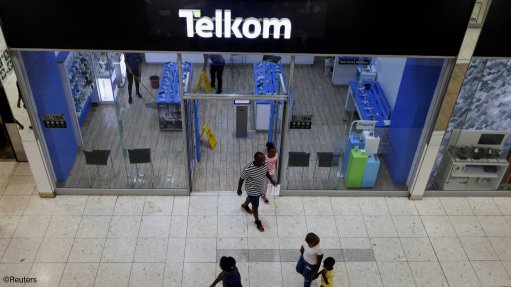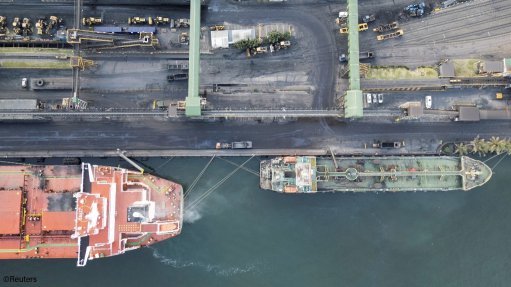Gone to the dogs
In 1994, South Africa probably had the best power system in the world. It was well-run; the power was never disconnected; it was stable and reliable; and the concept of the power being off for any length of time was absolutely unthinkable. The South African power system was so good that I went to a design meeting and the client asked me what would happen if the power was disconnected for any length of time. I answered, with some honesty, that it wouldn’t happen. The power could go off, but it was extremely unlikely it would go off for any length of time; we would require some form of major disaster for that to happen.
At the same time, the cost of electricity was very low, and the low electricity cost was a benefit to the whole country. How things have changed.
Right now, the change is such that the power system in South Africa is worse than the power system in some very undeveloped countries. For the first time in the history of South Africa, we have extensive power outages. Stop and read that again; for the first time since the beginning of the South African power system in 1994, we have got a power system which is regularly disconnected; we have a power system which is unreliable; we have a power system which employs people who are overpaid and basically incompetent; we have a power system which cannot and has not built a new power station without massive corruption and producing something which fundamentally does not work. Power is way more expensive than it was in 1994 and there are further increases looming.
It so happens that Kendal Power Station (4 000 MW) is the biggest dry-cooled power station in the world and was built in 1992, whereas the latest power stations commissioned by Eskom, Kusile and Medupi, don’t seem to be able to continue running in a reliable fashion and Medupi had one of its units blow up.
There are two questions to be answered; they are: “What has gone so wrong?” and “What solution is there, if any?”
The history of Eskom is probably, effectively, what has gone so wrong. When South Africa was run by the Nationalist government, the cost of electricity was very important to government and very important to people who supported government; the cheaper the electricity, the more money made by people who worked for the government (mines, transport, construction companies, etc.) Now that the new government has taken over, the incentive of keeping the price down has fallen away.
The various towns, municipalities, and so on, have used the cost of electricity to finance their whole operation. Previously, a small town obtained a reasonably good income from its sale of electricity, which it obtained from Eskom, at a profit. There is nothing wrong with a municipality making such a profit and it is a nice cash cow for a small municipality. Further, provided that a small town keeps its electrical system in order, it continues to make money and by “keeping the lights on” it keeps its consumers happy and fosters its economy. A large town makes more than just a reasonable profit from electrical sales. It can finance significant parts of its development from its electrical sales. Thus, electrical sales are very important in all respects.
However, when you have people in the electrical system who are not competent or if the money that is generated by the electrical system is used for other purposes, then financing the electrical system, looking after it, and maintaining it, cease to be important. The municipalities, because they are fundamentally political animals, are just basically incompetent and they think they can compensate for the loss of income which occurs, owing to decreasing sales, by putting up prices. Any fool can see this is a road to nowhere and it is unfortunate that many municipalities are operated by fools.
What is to be done? The only solution is for the electrical systems of all municipalities to become privatised and free of government influence and free of private control. This will be discussed in a future column.
Article Enquiry
Email Article
Save Article
Feedback
To advertise email advertising@creamermedia.co.za or click here
Press Office
Announcements
What's On
Subscribe to improve your user experience...
Option 1 (equivalent of R125 a month):
Receive a weekly copy of Creamer Media's Engineering News & Mining Weekly magazine
(print copy for those in South Africa and e-magazine for those outside of South Africa)
Receive daily email newsletters
Access to full search results
Access archive of magazine back copies
Access to Projects in Progress
Access to ONE Research Report of your choice in PDF format
Option 2 (equivalent of R375 a month):
All benefits from Option 1
PLUS
Access to Creamer Media's Research Channel Africa for ALL Research Reports, in PDF format, on various industrial and mining sectors
including Electricity; Water; Energy Transition; Hydrogen; Roads, Rail and Ports; Coal; Gold; Platinum; Battery Metals; etc.
Already a subscriber?
Forgotten your password?
Receive weekly copy of Creamer Media's Engineering News & Mining Weekly magazine (print copy for those in South Africa and e-magazine for those outside of South Africa)
➕
Recieve daily email newsletters
➕
Access to full search results
➕
Access archive of magazine back copies
➕
Access to Projects in Progress
➕
Access to ONE Research Report of your choice in PDF format
RESEARCH CHANNEL AFRICA
R4500 (equivalent of R375 a month)
SUBSCRIBEAll benefits from Option 1
➕
Access to Creamer Media's Research Channel Africa for ALL Research Reports on various industrial and mining sectors, in PDF format, including on:
Electricity
➕
Water
➕
Energy Transition
➕
Hydrogen
➕
Roads, Rail and Ports
➕
Coal
➕
Gold
➕
Platinum
➕
Battery Metals
➕
etc.
Receive all benefits from Option 1 or Option 2 delivered to numerous people at your company
➕
Multiple User names and Passwords for simultaneous log-ins
➕
Intranet integration access to all in your organisation


















